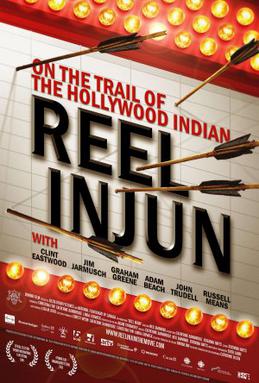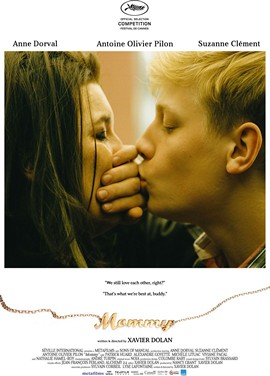Related Research Articles
Same-sex adoption is the adoption of children by same-sex couples. It may take the form of a joint adoption by the couple, or of the adoption by one partner of the other's biological child.

Alanis Obomsawin, is an Abenaki American-Canadian filmmaker, singer, artist, and activist primarily known for her documentary films. Born in New Hampshire, United States and raised primarily in Quebec, Canada, she has written and directed many National Film Board of Canada documentaries on First Nations issues. Obomsawin is a member of Film Fatales independent women filmmakers.
The Prix Iris is a Canadian film award, presented annually by Québec Cinéma, which recognizes talent and achievement in the mainly francophone feature film industry in Quebec. Until 2016, it was known as the Jutra Award in memory of influential Quebec film director Claude Jutra, but Jutra's name was withdrawn from the awards following the publication of Yves Lever's biography of Jutra, which alleged that he had sexually abused children.
Léa Pool C.M. is a Canadian and Swiss filmmaker who taught film at the Université du Québec à Montréal. She has directed several documentaries and feature films, many of which have won significant awards including the Prize of the Ecumenical Jury, and she was the first woman to win the prize for Best Film at the Quebec Cinema Awards. Pool's films often opposed stereotypes and refused to focus on heterosexual relations, preferring individuality.

Same-sex parenting is the parenting of children by same-sex couples generally consisting of gay, lesbian, or bi people who are often in civil partnerships, domestic partnerships, civil unions, or same-sex marriages.
Adoption in Australia deals with the adoption process in the various parts of Australia, whereby a person assumes or acquires the permanent, legal status of parenthood in relation to a child under the age of 18 in place of the child's birth or biological parents. Australia classifies adoptions as local adoptions, and intercountry adoptions. Known child adoptions are a form of local adoptions.
Tracey Penelope Tekahentakwa Deer is a First Nations (Mohawk) screenwriter, film director and newspaper publisher based in Kahnawake, Quebec. She has written and directed several award-winning documentaries for Rezolution Pictures, an Aboriginal-run film and television production company. In 2008, she was the first Mohawk woman to win a Gemini Award, for her documentary Club Native. Her TV series Mohawk Girls had five seasons from 2014 to 2017. She also founded her own production company for independent short work.
Preacher's Sons is a 2008 American documentary film, by C. Roebuck Reed and Mark Nealey. It follows the lives of a Unitarian Universalist minister, his husband, and the five sons they adopted from the California foster care system. The family is seen dealing with issues related to the fathers' homosexuality and the mixed-race composition of the family, as well as the disturbed backgrounds of the children before their adoptions. The introductory segment has been aired on the public television program, In the Life. The California Council for the Humanities supported the film.

Reel Injun is a 2009 Canadian documentary film directed by Cree filmmaker Neil Diamond, Catherine Bainbridge, and Jeremiah Hayes that explores the portrayal of Native Americans in film. Reel Injun is illustrated with excerpts from classic and contemporary portrayals of Native people in Hollywood movies and interviews with filmmakers, actors and film historians, while director Diamond travels across the United States to visit iconic locations in motion picture as well as American Indian history.
Rezolution Pictures is an Indigenous film and television production company based in Montreal, Quebec, Canada. The company was founded in 2001 by the husband and wife team of Ernest Webb and Catherine Bainbridge. Rezolution Pictures’ passionate team is led by co-founders/Presidents/directors/executive producers Ernest Webb and Catherine Bainbridge, Vice-President/executive producer Christina Fon, and CFO/executive producer Linda Ludwick.
Mohawk Girls is a 2005 documentary film by Tracey Deer about the experiences of adolescent girls growing up on the Mohawk reserve of Kahnawake, across the Saint Lawrence River from Montreal, Quebec. Deer, who was born and raised in Kahnawake, focuses on three young women: Felicia, Amy, and Lauren, a mixed race teen.
Catherine Bainbridge is a Canadian director, writer, and producer. She co-founded Rezolution Pictures, a Montreal-based film and television production company focusing primarily on Canadian Aboriginal productions, with director/writer/producer Ernest Webb in 2001.
The Sixties Scoop, also known as The Scoop, was a period in which a series of policies were enacted in Canada that enabled child welfare authorities to take, or "scoop up," Indigenous children from their families and communities for placement in foster homes, from which they would be adopted by white families. Despite its name referencing the 1960s, the Sixties Scoop began in the mid-to-late 1950s and persisted into the 1980s.
This article gives a broad overview of lesbian, gay, bisexual and transgender (LGBT) history in Canada. LGBT activity was considered a crime from the colonial period in Canada until 1969, when Bill C-150 was passed into law. However, there is still discrimination despite anti-discrimination law. For a more detailed listing of individual incidents in Canadian LGBT history, see also Timeline of LGBT history in Canada.
Law in Australia with regard to children is often based on what is considered to be in the best interest of the child. The traditional and often used assumption is that children need both a mother and a father, which plays an important role in divorce and custodial proceedings, and has carried over into adoption and fertility procedures. As of April 2018 all Australian states and territories allow adoption by same-sex couples.
Until 2017, laws related to LGBTQ+ couples adopting children varied by state. Some states granted full adoption rights to same-sex couples, while others banned same-sex adoption or only allowed one partner in a same-sex relationship to adopt the biological child of the other.

Mommy is a 2014 Canadian drama film written, directed and edited by Xavier Dolan and starring Anne Dorval, Antoine Olivier Pilon, and Suzanne Clément. The story concerns a mother with a sometimes-violent teenage son, struggling to control his behaviour in a desperate attempt to avoid seeing him being institutionalized.
LGBT parents in Canada have undergone significant progress in terms of both legal and social acceptance. Same-sex couples who wish for parenthood now enjoy equally the possibilities, responsibilities and rights of opposite-sex couples. Following the nationwide legalization of same-sex marriage in 2005, the number of LGBT families in Canada has increased substantially, paving the way for same-sex couples' aspirations of having their own children. Legal methods of assisted reproduction range from insemination via IVF through to surrogacy arrangements.
The Academy of Canadian Cinema and Television presents an annual award for Best Feature Length Documentary. First presented in 1968 as part of the Canadian Film Awards, it became part of the Genie Awards in 1980 and the contemporary Canadian Screen Awards in 2013.
The Price We Pay is a 2014 Canadian documentary film. It premiered at the 2014 Toronto International Film Festival. Directed by Harold Crooks and based on Brigitte Alepin's book La Crise fiscale qui vient, the film profiles the use of tax havens by large corporations as a dodge from having to pay corporate taxes.
References
- 1 2 3 4 5 6 Kelly, Brendan (4 December 2007). "Four years to become parents". Montreal Gazette . Archived from the original on 9 November 2012. Retrieved 24 December 2010.
- 1 2 Hampton, Sarah (3 December 2008). "Adopting a broader view of family". The Globe and Mail . Retrieved 24 December 2010.
- 1 2 3 4 5 Flacks, Diana (1 March 2008). "A multi-year gestation". Toronto Star . Retrieved 24 December 2010.